It’s not fake news, it’s very real. This Month in Classical Music History is a series dedicated to finding stories of the good, the bad, and the downright weird. For December read about Handel fighting his best friend in a duel, the apropos death of an atonal composer thought to be a Nazi sympathizer, and one of Indiana’s own Jazz legends, David Baker.
December: This Month in Classical Music History
December 5, 1704: Hallelujah! Handel Survives Duel
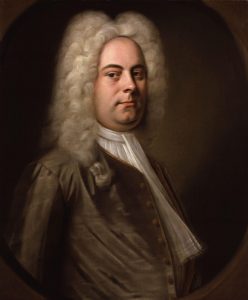
George Frideric Handel
George Frideric Handel, composer of the famous “Hallelujah Chorus” from Messiah, once fought a deadly duel with his contemporary, Johann Mattheson in 1704. The two composers were both young men at the time (Handel was 19 and Mattheson was 23) and apparently got into a fight during a performance at the Hamburg Opera.
The incident occurred, allegedly, because Handel refused to relinquish the conductor’s seat during the premiere of one of Mattheson’s operas Cleopatra. That night, Mattheson had to both perform as a character in the opera (Anthony, a tenor role) and conduct from the harpsichord. Scholars speculate that Mattheson requested Handel to fill in as conductor while Mattheson sang. After Mattheson performed his part on stage he went to return to the conductor’s seat at the harpsichord. But Handel would not move.
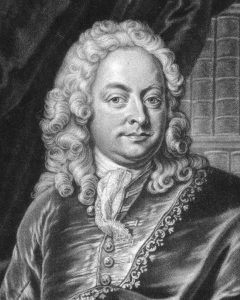
Johann Mattheson
It’s said that the two argued over who should be in the conductor’s seat – Mattheson, being the composer, wanted control, yet Handel refused to leave the post. Mattheson suggested that the two take their quarrel outside. And so, right outside of the theater, the hot-headed young composers drew their swords and conducted, instead, a duel. A detailed account of the duel cannot be found, yet one prevailing report suggests that Handel was nearly killed by a sword thrust from Mattheson. The thrust went right for his heart, but, thankfully, ran into a large metal button on his coat, which prevented Handel’s death. As the duel came to a close, the two composers miraculously reconciled and became life-long friends. They maintained correspondence even after Handel moved to London to live out the rest of his stellar career.
To learn more about Mattheson and emotions in music, check out our blog post “Mood Music by Michael Toulouse.”
December 3, 1883: Anton Webern is born, shot by U.S. Army soldier in 1945
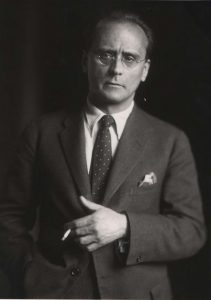
Anton Webern, Source.
Anton Webern was an Austrian composer of atonal music and is most known for his work in the style of serialism. Serialism, also known as twelve-tone technique or dodecaphony, is a method of composing music in which all 12 notes (A, A#/Bb, B, C, C#/Db, D, D#/Eb, E, F, F#/Gb, G, G#/Ab) are given equal importance. This technique makes the music sound like it has no key or tonal center which is where the term “atonal” comes from. Some people think atonality sounds too harsh and is a little confusing while others find it intriguing and just as expressive as traditional classical music. Decide for yourself by listening to Webern’s Variations for piano, Op. 27.
Whether Webern’s music suits you or not, a point of fascination by scholars has been Webern’s connection to Nazism during the 30s and 40s. There are some accounts from Webern’s personal letters that lend to the belief that he was pro-Nazi, yet there are also accounts of Webern safeguarding Jewish friends during the time of the Third Reich. In fact, Webern’s mentor and friend Arnold Schoenberg was Jewish and fled to the United States in 1934, yet there is no evidence of Webern exhibiting anti-Semitic behavior towards Schoenberg. These conflicting reports make it unclear what Webern’s true beliefs were. It is quite possible that Webern acted however he needed to in order to survive and continue to earn a living under the Nazis.
We can only guess what his true feelings were regarding Nazis, but what is certain is that on September 15, 1945 Webern stepped outside of his house in Vienna to smoke a cigar and was shot and killed by a U.S. Army soldier. Those who condemn Webern’s affiliation with Nazi Germany consider this to be a fitting end for the incredibly influential composer.
December 21, 1931: Indiana Jazz legend David Baker is born
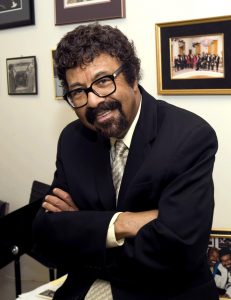
David Baker, Source.
One cannot scour the history of Indiana Jazz without coming across the name David Baker. Baker was an incredible musician, inspiring teacher, and major figure in Jazz who is most often recognized as a prolific composer credited with 2,000 compositions, 65 recordings, 70 books, and 400 articles. Baker also founded the Jazz Studies program at the Indiana University Jacobs School of Music.
One of the most compelling aspects of Baker’s career is the story of how he switched the instrument he played from trombone to cello when he was at the height of his performance career. Baker was making records and performing frequently in his late 20s, but suffered a jaw injury from a car accident. When he was 31 years old, his jaw could no longer sustain playing for long periods of time and he decided to switch from trombone to cello. Although he still actively performed on cello (and somehow managed to record trombone on a few albums despite his injury), this change in instruments caused him to focus less on performing and more on composing and teaching.
Jazz musicians nationwide are glad Baker was determined enough to go with this new career trajectory because his work impacted many. Tom Walsh, chair of the Jacobs Jazz Studies Department said in an IUB Newsroom article released after Baker’s passing in 2016, “Over the last 50 years, David Baker inspired thousands of music students, educators and musicians. His influence permeates the teaching of jazz music around the globe.”1 Although his passing is still relatively recent, his legacy and impact will continue on for many more years to come. To listen to some of Baker’s compositions, check out Basically Baker, Vol. 2 by the Buselli-Wallarab Jazz Orchestra on Spotify.
1. http://archive.news.indiana.edu/releases/iu/2016/03/david-baker-tribute.shtml

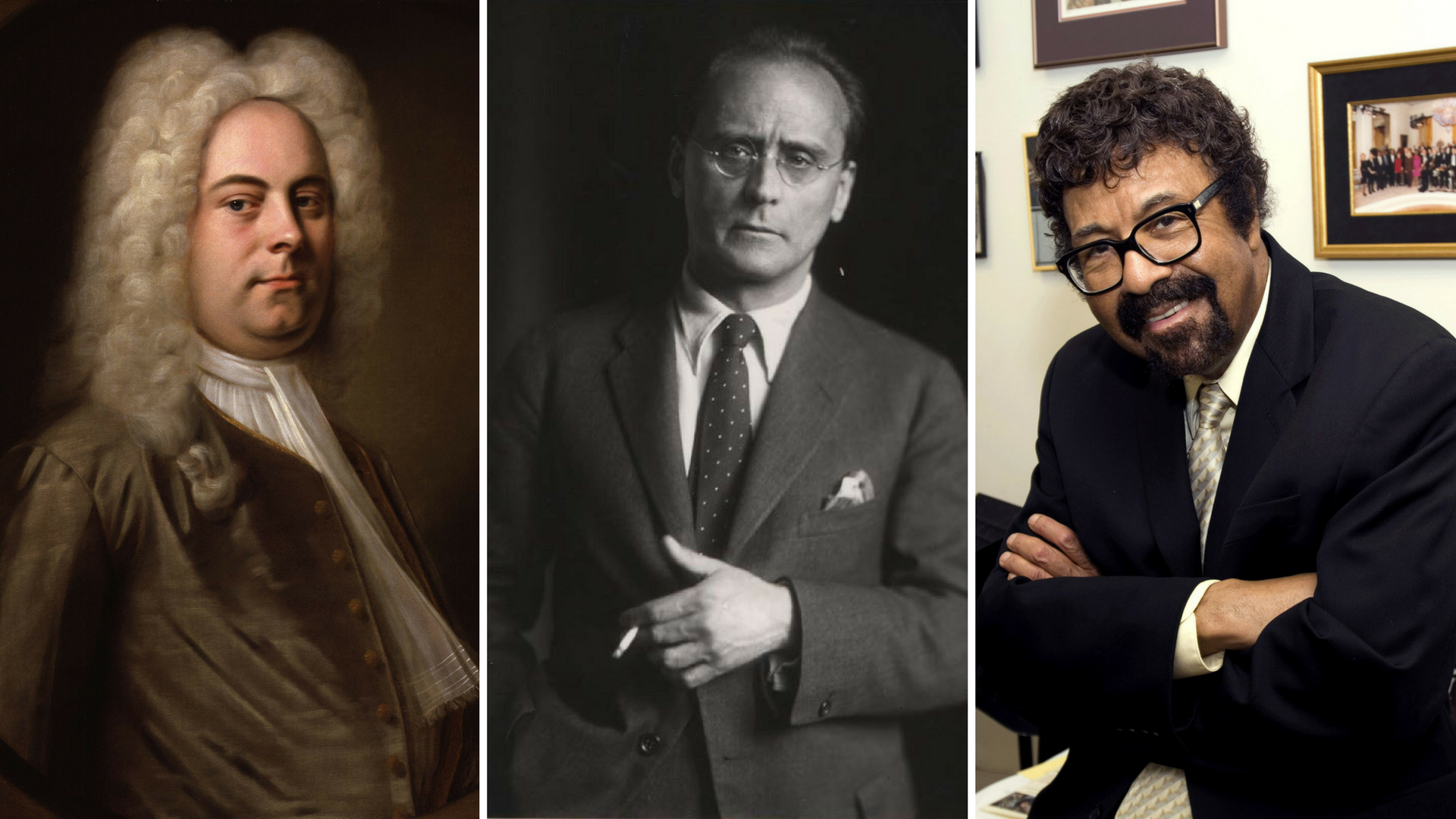






Loved the history… Handel is a fav of my brother. Every xmas it’s heard ellie
ellie
ad nauseam. The name Baaker is an ancestor of many, including me. Jazz is an
essential in my life.. Rock n roll and alternative music are partners.
Thanks for this site and info…